detail profile kei sat c5 8d
Peran Yang Di Mainkan Kei Satō
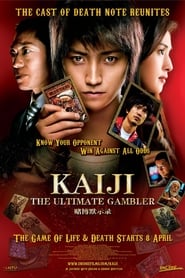 Kaiji Ito moves to Japan after...
Kaiji Ito moves to Japan after...Kaiji: The Ultimate Gambler 2009
Kaiji Ito moves to Japan after graduating from high school. Unable to find a job and frustrated with society at large, Kaiji spends his days gambling, vandalizing cars, and drinking booze. Two years later and his life is no better. A debt collector named Endo arrives to collect money owed. The debt collector offers two choices to Kaiji: spend 10 years paying off his loan or board a gambling boat for one night to repay his debt & possibly make a boat load of money. Could the debt collector Endo actually be setting up Kaiji? One way or another, for Kaiji it's going to be the night of his life.
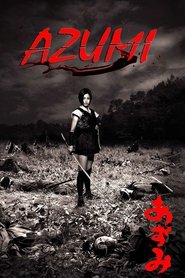 In wartorn Japan the Tokugawa Shogun...
In wartorn Japan the Tokugawa Shogun...Azumi 2003
In war-torn Japan, the Tokugawa Shogun, desperate to restore peace to his people, orders the assassination of the hostile warlords. A beautiful young woman is raised from birth with nine other orphans, to become an assassin. Her name is Azumi, the ultimate assassin.
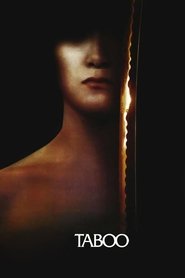 Set during Japans Shogun era this...
Set during Japans Shogun era this...Taboo 1999
Set during Japan's Shogun era, this film looks at life in a samurai compound where young warriors are trained in swordfighting. A number of interpersonal conflicts are brewing in the training room, all centering around a handsome young samurai named Sozaburo Kano. The school's stern master can choose to intervene, or to let Kano decide his own path.
 Schoolgirl Kuniko is kidnapped by a...
Schoolgirl Kuniko is kidnapped by a...The Perfect Education 1999
Schoolgirl Kuniko is kidnapped by a middle-aged man Iwazono when she is jogging. He tells her that he had a failed marriage which leaves him a deep and everlasting scar in his mind. He kidnaps her in search of a perfect marriage and intends to lock her in the room and 'educate' her to perform perfect sex where body and soul are united.
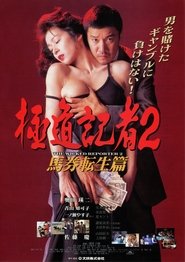 The continuing adventures of Matsuzaki a...
The continuing adventures of Matsuzaki a...The Wicked Reporter 2: The Rebirth of Horserace Betting 1994
The continuing adventures of Matsuzaki, a racing tipster for a sports paper. Matsuzaki befriends a mysterious old track bettor named Tokudaiji. The man turns out to be a well-connected millionaire and invites Matsuzaki to his home.
 Originally released in Japan as The...
Originally released in Japan as The...Godzilla 1985 1985
Originally released in Japan as "The Return of Godzilla" in 1984, this is the heavily re-edited, re-titled "Godzilla 1985". Adding in new footage of Raymond Burr, this 16th Godzilla film ignores all previous sequels and serves as a direct follow-up to the 1956 "Godzilla King of the Monsters", which also featured scenes with Burr edited into 1954's "Godzilla". This film restores the darker tone of the original, as we witness the nuclear destruction of giant lizard terrorizing Japan.
 After a fishing boat is attacked...
After a fishing boat is attacked...The Return of Godzilla 1984
After a fishing boat is attacked, the sole surviving crew member realizes it is none other than a resurrected Godzilla. However, efforts to bring the story to light are suppressed by the Japanese government amid growing political tensions between the United States and the Soviet Union, who are both willing to bomb Japan to stop the monster.
 A high school science teacher is...
A high school science teacher is...The Man Who Stole the Sun 1979
A high school science teacher is the butt of all his students' jokes, until their bus is hijacked on a school trip. But something more sinister lurks beneath the surface: he's building an atomic bomb in his apartment.
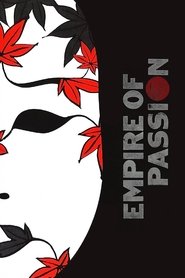 In a small Japanese village at...
In a small Japanese village at...Empire of Passion 1978
In a small Japanese village at the end of the 19th century, a rickshaw driver's wife takes on a much younger lover and the two conspire to murder him.
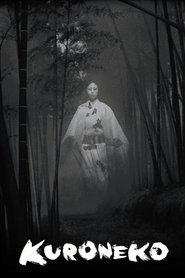 In the Sengoku period a woman...
In the Sengoku period a woman...Kuroneko 1968
In the Sengoku period, a woman and her daughter are raped and murdered by soldiers during a time of civil war. Afterwards, a series of samurai returning from the war through that area are found mysteriously dead with their throats torn out. The governor calls in a wild and fierce young hero to quell what is evidently an Onryō ghost. He encounters the two beautiful women in an eerie, beautiful scene. After spiritual purification, he meets the demon in a thrilling fight.
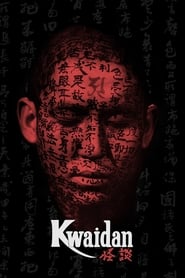 Taking its title from an archaic...
Taking its title from an archaic...Kwaidan 1965
Taking its title from an archaic Japanese word meaning "ghost story," this anthology adapts four folk tales. A penniless samurai marries for money with tragic results. A man stranded in a blizzard is saved by Yuki the Snow Maiden, but his rescue comes at a cost. Blind musician Hoichi is forced to perform for an audience of ghosts. An author relates the story of a samurai who sees another warrior's reflection in his teacup.
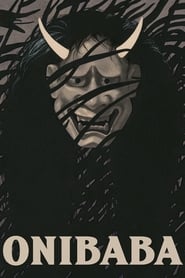 While her son Kichi is away...
While her son Kichi is away...Onibaba 1964
While her son, Kichi, is away at war, a woman and her daughter-in-law survive by killing samurai who stray into their swamp, then selling whatever valuables they find. Both are devastated when they learn that Kichi has died, but his wife soon begins an affair with a neighbor who survived the war, Hachi. The mother disapproves and, when she can't steal Hachi for herself, tries to scare her daughter-in-law with a mysterious mask from a dead samurai.
 Downonhisluck veteran Tsugumo Hanshir enters the...
Downonhisluck veteran Tsugumo Hanshir enters the...Harakiri 1962
Down-on-his-luck veteran Tsugumo Hanshirō enters the courtyard of the prosperous House of Iyi. Unemployed, and with no family, he hopes to find a place to commit seppuku—and a worthy second to deliver the coup de grâce in his suicide ritual. The senior counselor for the Iyi clan questions the ronin’s resolve and integrity, suspecting Hanshirō of seeking charity rather than an honorable end. What follows is a pair of interlocking stories which lay bare the difference between honor and respect, and promises to examine the legendary foundations of the Samurai code.
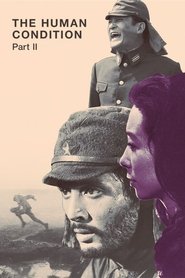 Kaji is sent to the Japanese...
Kaji is sent to the Japanese...The Human Condition II: Road to Eternity 1959
Kaji is sent to the Japanese army labeled Red and is mistreated by the vets. Along his assignment, Kaji witnesses cruelties in the army and revolts against the abusive treatment against the recruit Obara. He also sees his friend Shinjô Ittôhei defecting to the Russian border, and he ends in the front to fight a lost battle against the Russian tanks division.
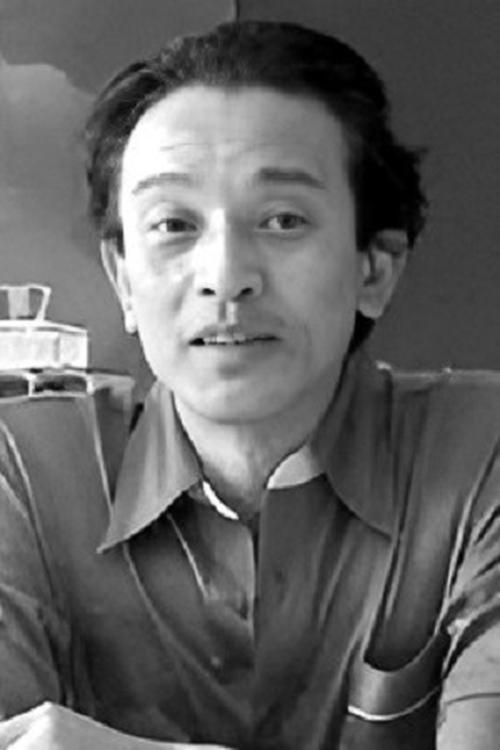
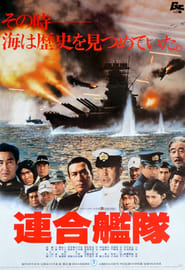 A lavish retelling of the true...
A lavish retelling of the true...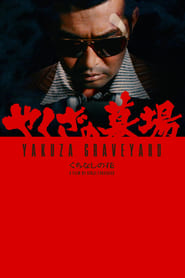 A police investigator cracks down on...
A police investigator cracks down on...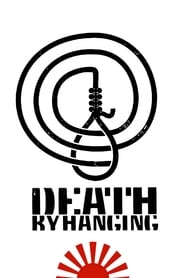 A Korean man is sentenced to...
A Korean man is sentenced to...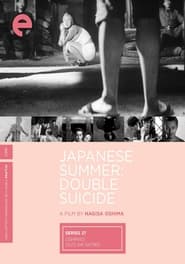 A sexobsessed woman a suicidal man...
A sexobsessed woman a suicidal man...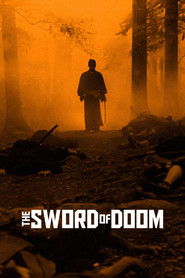 Ryunosuke a gifted swordsman plying his...
Ryunosuke a gifted swordsman plying his...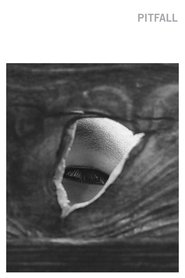 A man wanders into a seemingly...
A man wanders into a seemingly...